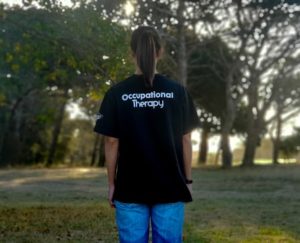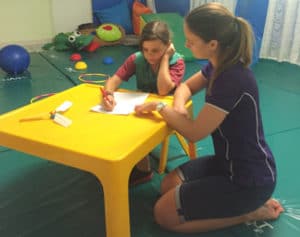Are you new to occupational therapy or considering it for a loved one? It’s natural to have questions and curiosity about how the process works and what it can offer. Understanding each stage can help create a picture of what to expect in OT, fostering a sense of preparation. In this blog, we will explore the various stages of occupational therapy, offering insight into how this process can support individuals in achieving their goals.

What Is Occupational Therapy?
Occupational therapy (OT) focuses on helping individuals engage in meaningful activities or “occupations.” These activities are the foundation of everyday life and can include tasks such as dressing, cooking, or managing personal hygiene. For some, these may also involve broader goals like enhancing mobility, developing social skills, or finding adaptive ways to participate in hobbies or work-related tasks.
By focusing on practical, achievable steps, occupational therapy may help individuals adapt to their circumstances and navigate challenges in a way that feels manageable. Whether it’s learning a new way to perform a familiar task or building confidence in a completely new skill, OT is centred on empowering individuals to participate in the activities that matter most to them.
The Occupational Therapy Process
Occupational therapy involves a personalised approach to understanding each individual’s unique needs and goals. Here is an overview of the typical process you may expect:
- Initial Consultation: The first step involves an initial assessment. During this session, the therapist gathers information about the individual’s background, medical history, and specific challenges. This is also a time to discuss personal goals and expectations.
- Comprehensive Assessment: Following the consultation, a more detailed assessment may be conducted. This could involve observing daily tasks, evaluating physical and cognitive abilities, or discussing challenges with caregivers or family members. This step is crucial in identifying barriers and opportunities for improvement.
- Goal Setting: Once the assessment is complete, the occupational therapist collaborates with the individual (and their family, if applicable) to set realistic goals. These goals can serve as a roadmap for the therapy process.
- Therapy Plan: Based on the goals, a customised therapy plan is developed. This plan outlines the specific interventions, exercises, or strategies that will be implemented. It may include activities to improve physical coordination, enhance social skills, or adapt environments for better accessibility.
- Regular Sessions: Therapy sessions may occur weekly or biweekly, depending on the individual’s needs. During these sessions, the therapist may work on targeted skills and provide guidance on implementing strategies in everyday life.
- Progress Reviews: Periodically, the therapist reviews progress toward the established goals. Adjustments to the therapy plan may be made to ensure it continues to meet the individual’s evolving needs.
Who May Benefit From Occupational Therapy?
Occupational therapy may be suitable for individuals across various age groups who experience challenges in their daily lives. Some common conditions and circumstances that may benefit from OT include:
- Developmental delays in children
- Behavioural & emotional disorders
- Autism spectrum disorders
- Recovery from injuries or surgeries
- Chronic illnesses or disabilities impacting daily functioning
If you are unsure about occupational therapy, our team can guide you through the decision-making process.
Learn More About the Occupational Therapy Process
At Stepping Stones in Life Therapy Service, our Darwin occupational therapy services are designed to support individuals of various ages. Whether you are seeking assistance for a child facing developmental delays or an adult recovering from an injury, our team focuses on practical strategies to promote independence and participation in everyday activities.
If you’re considering occupational therapy for yourself or a loved one, reach out to schedule an initial consultation. Our team is here to guide you through the process and answer any questions you may have.
Author

Barbara Kapser
Barbara Kapser is our psychologist at Stepping Stones in Life Therapy Service in Darwin. She's a member with the Australian Psychological Society and the Australian Association for Infant Mental Health.
She specialises in perinatal infant mental health, attachment disorders, developmental trauma and behaviour support.





